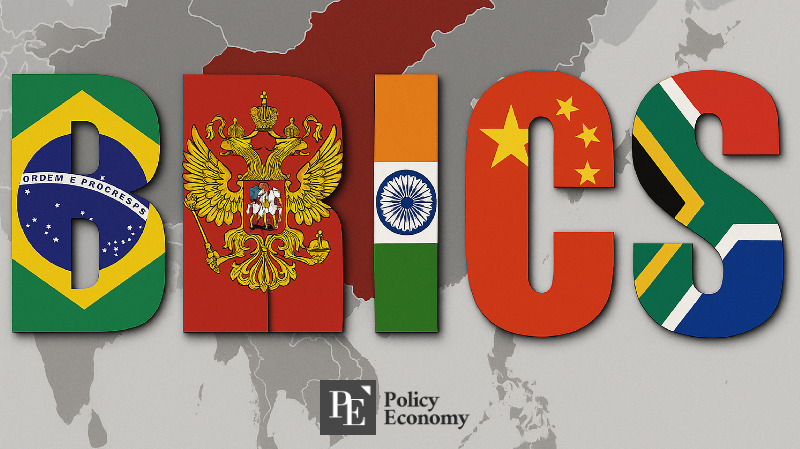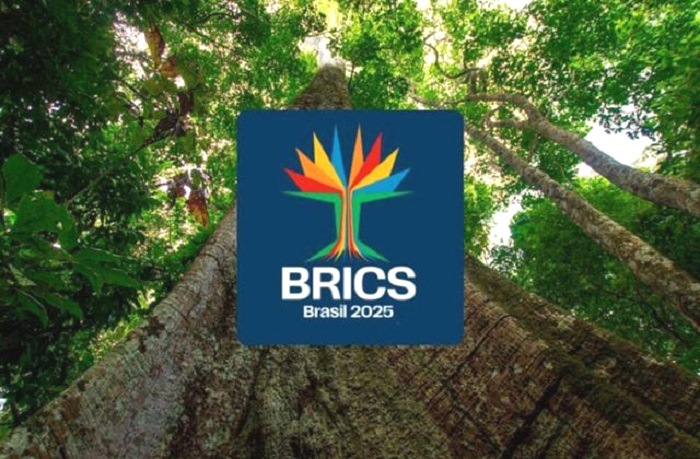“Support BRICS and Face Tariff Bomb” — Trump Warns Anti-U.S. Countries of Additional 10% Penalty
Input
Modified
BRICS Summit Held in Brazil on July 6–7 Criticism on U.S. Tariffs and Iran Strike Trump Threatens: “No Exceptions to Tariff Imposition”

U.S. President Donald Trump has declared that a 10% additional tariff will be imposed on all countries that align themselves with the anti-American stance of BRICS, a coalition of emerging economies outside the Western bloc. His comments, coming amid ongoing tariff negotiations with various U.S. trade partners, are seen as targeting the BRICS Summit that opened the previous day in Brazil.
Trump releases tariff letter on SNS
On the 6th (local time), President Trump announced on his social media platform Truth Social, “All nations that align with BRICS’ anti-American policy will be subject to an additional 10% tariff, and there will be no exceptions.” However, he did not specify what constitutes an anti-American policy. He added, “I am pleased to announce that tariff-related letters or agreements from the United States to various countries around the world will begin to be delivered from Monday, July 7 at 12:00 p.m. Eastern Time.”
Previously, President Trump warned that if BRICS countries push forward with a joint currency initiative, the U.S. could impose tariffs of up to 100%. As the tariff grace period announced by the Trump administration approaches the July 9 deadline, the president stated that if no agreement is reached by that date, letters notifying countries of the new tariff rates would be sent. The new tariffs could range from 10% to 70%, and would take effect starting August 1.
BRICS pushes back against Trump’s tariff threats
In response to Trump’s tariff threats, BRICS immediately expressed opposition and stressed solidarity among member nations. Brazilian President Luiz Inácio Lula da Silva said at a press conference on the 7th, “It is very wrong for the president of a major power like the United States to intimidate the world through an online network,” adding, “We do not want an emperor.” He emphasized, “People need to understand the meaning of the word sovereignty,” and pointed out, “He (Trump) needs to recognize that the world has changed.”
Within Brazil, there were also claims that the U.S. tariffs could negatively affect the United States itself, given Brazil’s position as South America’s largest economy. Celso Amorim, Special Advisor for International Affairs at the Brazilian Presidential Office, said in an interview with CNN Brazil on the 7th, “The U.S. tariffs are like shooting oneself in the foot,” noting, “Brazil is already running a significant trade deficit with the United States.” According to trade figures released by the Brazilian government, Brazil recorded a trade deficit of 6.8 billion dollars with the U.S. last year.
Amorim further remarked, “In fact, the biggest issue is not the U.S. tariffs,” adding, “The more significant challenge lies in the shift of the global trade system from multilateral to bilateral negotiations.” He stated, “If threats and tariffs are always used, other countries will find alternatives and negotiate among themselves,” implying potential cooperation through BRICS solidarity.
South African President Cyril Ramaphosa, who is visiting Brazil for the summit, also stated, “It is truly disappointing that when there is a positive movement like BRICS, it is viewed negatively and participant countries are punished,” adding, “Might does not make right.” He emphasized, “BRICS does not seek competition with any other great power,” and highlighted the spirit of consensus in its discussions.

Xi Jinping and Putin absent from summit, BRICS criticizes U.S. over Iran airstrikes and tariff policy
President Trump’s check on BRICS came in response to criticism from member nations about his tariff policy during the 17th BRICS Summit held in Rio de Janeiro, Brazil, on July 6–7. In a pre-agreed declaration, BRICS leaders condemned “military attacks on peaceful nuclear facilities under full IAEA surveillance in Iran,” and criticized “indiscriminate tariff hikes” for disrupting the global trade order. They also expressed “grave concern” for Palestinian residents in Gaza, who have been under attack by Israel.
Additionally, BRICS called for reforms to the Western-dominated financial order led by the International Monetary Fund (IMF) and the World Bank (WB). BRICS voiced full support for pilot initiatives to reduce funding costs and promote investment guarantees within the New Development Bank (NDB). Often referred to as the BRICS version of the World Bank, the NDB is viewed as a means to reduce reliance on the dollar under U.S. leadership.
This summit was the first since BRICS expanded from its long-standing five members (Brazil, Russia, India, China, and South Africa) to 11 countries (adding Egypt, Ethiopia, Iran, the United Arab Emirates, Saudi Arabia, and Indonesia). The 11 BRICS countries now account for about 39% of global nominal GDP and more than half of the world’s population. BRICS nations also hold about 72% of the world’s rare earth mineral reserves and account for 43.6% of global oil production.
However, Chinese President Xi Jinping did not attend this BRICS summit for the first time since taking office, and Russian President Vladimir Putin, who is under an International Criminal Court (ICC) arrest warrant, participated via video speech. Since Brazil is a member of the ICC, Putin could have faced arrest had he visited. In his video address, President Putin emphasized that BRICS countries should expand their “de-dollarization” efforts by strengthening trade and financial cooperation based on their own currencies. Host country President Lula of Brazil also stated, “BRICS must take the lead in reforming multilateralism.”





















